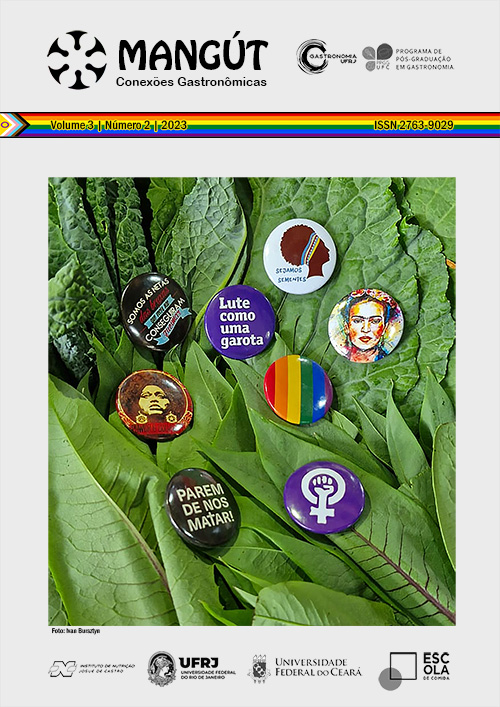Erotic gastronomy: exploring the interaction between food, body and gender identity in popular culture
DOI:
https://doi.org/10.70051/mangt.v3i2.61244Keywords:
Gastronomy, Erotic, Food Culture, Sexuality, Gender IdentityAbstract
This article analyzes the phenomenon of erotic gastronomy, characterized by the sale of food shaped like sexual organs, as a representation of the complex interactions between food, body, sensuality and gender identity. In history, ancient cultures associated foods with aphrodisiac powers and fertility, influencing contemporary traditions, which are perpetuated in popular culture, through social media, films, music and advertising. This is exploratory research, with an interdisciplinary approach, which seeks to understand the intersection between gender and food through historical roots, cultural and media influences and the psychological and social implications. The results analyzed reveal that sensual food is not just an ephemeral trend, but a challenge to traditional stereotypes, being a powerful tool for exploring sexuality and gender expression, provoking a reflection on body image and pre-established eating patterns. Ultimately, it highlights how the food dynamics of different popular groups should be an ongoing study.
Downloads
Published
Issue
Section
License
Copyright (c) 2024 RAMON ARAUJO OLIVEIRA, MARESSA DE CARVALHO MESQUITA, CARLOS DE ARAUJO FERREIRA

This work is licensed under a Creative Commons Attribution 4.0 International License.
Autores que publicam nesta revista concordam com os seguintes termos:
- Autores mantém os direitos autorais e concedem à revista o direito de primeira publicação, com o trabalho simultaneamente licenciado sob a Licença Creative Commons Attribution que permite o compartilhamento do trabalho com reconhecimento da autoria e publicação inicial nesta revista.
- Autores têm autorização para assumir contratos adicionais separadamente, para distribuição não-exclusiva da versão do trabalho publicada nesta revista (ex.: publicar em repositório institucional ou como capítulo de livro), com reconhecimento de autoria e publicação inicial nesta revista.
- Autores têm permissão e são estimulados a publicar e distribuir seu trabalho online (ex.: em repositórios institucionais ou na sua página pessoal) a qualquer ponto antes ou durante o processo editorial, já que isso pode gerar alterações produtivas, bem como aumentar o impacto e a citação do trabalho publicado (Veja O Efeito do Acesso Livre).



